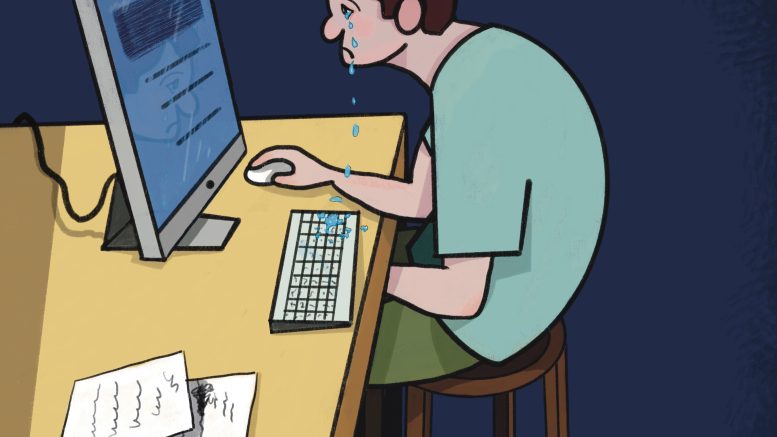Sometimes we grow attached to art because it speaks to our values, and it hurts when we find out the history behind that art doesn’t align with our image of it.
The critically acclaimed Disco Elysium is a 2019 role-playing video game from Estonian game studio ZA/UM. You play as an amnesiac alcoholic middle-aged cop at rock bottom with no redeeming qualities to his name. The character is in similar company among the rest of the game’s roster of cutthroats, thieves, thugs, villainous industrialists and Machiavellian union bosses.
Disco Elysium’s creators famously shouted out Marx and Engels during their acceptance speech at the Game Awards, but the game is not preachy about its politics. Each person and perspective in the game is flawed, and none are spared from criticism.
The game’s real villains are those who enrich themselves on the suffering of marginalized people. At the same time, self-righteous university students waxing philosophical about their super niche version of communism are portrayed for what they are — ineffectual.
Because Disco Elysium was so particularly funny and thought provoking, beautiful and grimy, its upcoming sequel has been highly anticipated. Unfortunately, it seems the game may not see the light of day. The details around what exactly is going wrong with the production of Disco Elysium 2 are hazy and stuffed with hearsay. From what I can glean, the lead writer of the first game, Robert Kurvitz, is at loggerheads with ZA/UM CEO Ilmar Kompus.
Kurvitz and other leading creators of the first game have all left the company. Kompus claims each creator was fired for workplace misconduct, and that Kurvitz was specifically fired for allegedly creating a toxic and misogynistic work environment. Kurvitz reportedly wants a commanding share of the Disco Elysium Intellectual Property (IP), while Kompus had his controlling share of the company frozen on suspicion of fraud last year.
While I cannot guess exactly what prompted so many of the creative leads to walk away from the production of Disco Elysium 2 to the point that the game’s future is looking shaky, there is a sad irony in the fact that people who made a game exploring communist theory seem to be at the centre of labour rights and ownership disputes.
IP rights do not in reality represent the amount of labour the rights holder put into a work. Rather, IP holders essentially gain veto power over whether or not a work is reproduced or, and in some cases, whether or not it is produced at all. It seems like, as ZA/UM gained more investors, the company did not have any protections in place to prevent individuals in non-creative roles from gaining authority over the production of their IP.
As the developers had more resources at their disposal for making a game on a grander scale, they didn’t seem to have stopgaps in place to ensure they were restructuring the company in accordance with the creators’ anti-capitalist politics.
ZA/UM touts itself as being a Living Wage Employer — case sensitive — but doing the bare minimum and providing better than starvation wages clearly wasn’t enough to guard against misogyny or market forces impinging on the company’s stability.
For those of us who hope to build a better world, trying to hold back from creating an unhealthy and unjustly stratified organization should be top of mind. If it turns out that Kurvitz really was creating irony upon ironies, just like everyone was for themselves in the world of Disco Elysium, nobody wins for playing the game.



